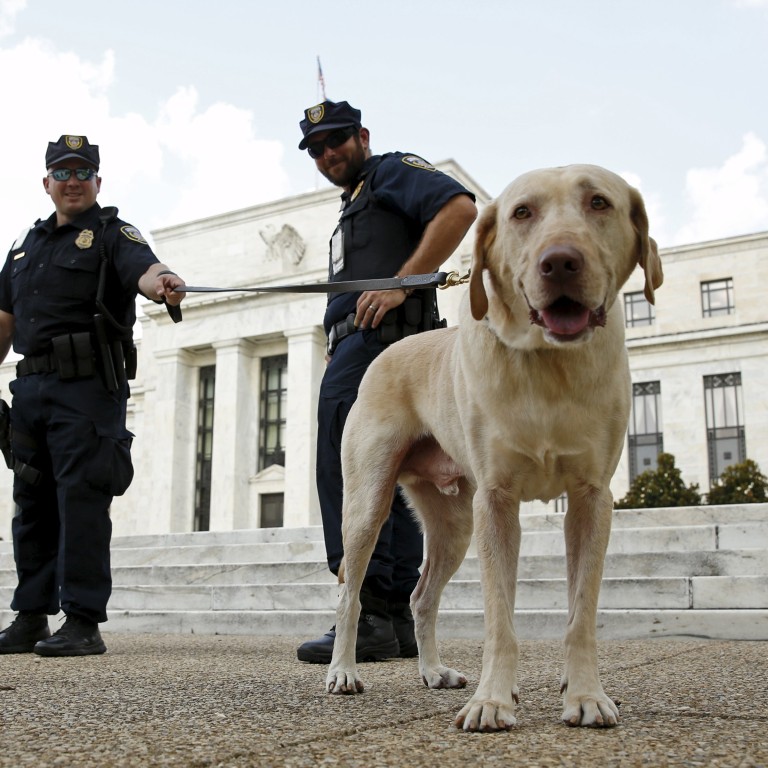
Cacophony of mouths in US Fed should learn to shut up
The principle of collective responsibility is a key feature of the British Cabinet; the group of ministers that effectively act as the United Kingdom’s politburo. The principle has been developed over centuries as a way of ensuring that all members of the Cabinet support all collective decisions in public. If you want to be on the team you get behind the team decisions. If you don’t like it; go forth and multiply.
So it is becoming an increasingly unseemly occurrence for various governors of the US Federal Reserve Board to be competing for airtime about their views on the impending rise in interest rates. This is the single most important known event to impact financial markets in a year or two and it is rapidly descending into an omnishambles.
On Tuesday, Eric Rosengren, president of the Boston Fed and a known “dove”, came out saying that what was happening in China might delay the rise in interest rates.
The comments assisted a fall on Wall Street of nearly 3 per cent and Rosengren isn’t even a voting member of the Fed. Bill Dudley of New York, who is a voting member, had previously said rate rises were less likely because of the China slowdown. Then in a long-awaited speech at the Central Banker’s jamboree in Jackson Hole last weekend, Vice Chairman of the Fed and former dove, Stanley Fischer, said that overseas events were unlikely to impact the Fed’s decision.
Call me old-fashioned, but I cannot imagine this kind of ill-discipline happening under the leadership of the respected Paul Volcker, Alan Greenspan, or Ben Bernanke. Janet Yellen, Federal Reserve Board Chairman is increasingly giving the impression of being in charge but not in control. She didn’t even bother to join the Jackson Hole policy wonk-fest.
One day we get good economic figures out of the US and the market thinks rates are going up. The next minute markets get spooked about China’s hard landing and the message from the Fed is irresponsibly mixed. So it is not surprising that the VIX index of volatility is at its highest in four years. These most intelligent people, intimately determining a great issue of our age, are playing parish-pump politics in front of the microphones like second-tier Presidential candidates.
The markets want a single clear decision not a chorus. It is bad enough figuring out the impact of a rise in interest rates without having a chorus of dissent from the policymakers themselves.
This disease of multiplicity is not confined to the Fed. The other set of policymakers who resemble Dr. Dolittle’s famous pushmi-pullyu character live in China.
In one corner, you have the Commerce Department who want a whopping great devaluation of the RMB to assist exports; in the other, Chinese central policy demands a strong currency and an apparently floating interest rate. In the third corner, currency intervention sucks liquidity from the economy, so interest rates need to come down.
Yet from the People’s Bank of China in the fourth corner, there is a distinct lack of conviction to use their policy weapons, as if by doing so they will lose face. If rates are in the 4 per cent range, a drop in rates of ½ per cent is nothing. And how is a mere ½ per cent cut in bank reserve requirements going to help when many banks have to retain 19 per cent or so of their deposits? Where is the Big Bazooka?
The Fed has learned that the way to use your firepower is to move rates significantly enough to shock the market. If you use your policy tools in a piecemeal manner, the market becomes used to what you are doing and each successive bullet has less impact. Allow the market to find its true level, even if it overshoots, and it will recover stronger than before. Insist there is nothing wrong and you will eventually run out of firepower and credibility.
It is just something that we investors have to put up with as we tramp through the battlefield like the poor blooming infantry, picking our way through shell bursts. But comfort comes from looking at the raw data about what is actually happening.
At the moment, US economic data looks pretty good. European economic data is improving. Interest rate rises and a fall in Chinese demand may well dent economic growth, but the meltdown in commodity prices and inflation will certainly encourage it.
The investor has to weigh up these differing factors and then make his bets. And my bet is that the squabbling is just noise; and that the economic factors will largely cancel themselves out. We are currently in a consolidation phase within an extended period of painfully sluggish world growth – but it is growth indeed.
Richard Harris is chief executive of Port Shelter Investment Management

